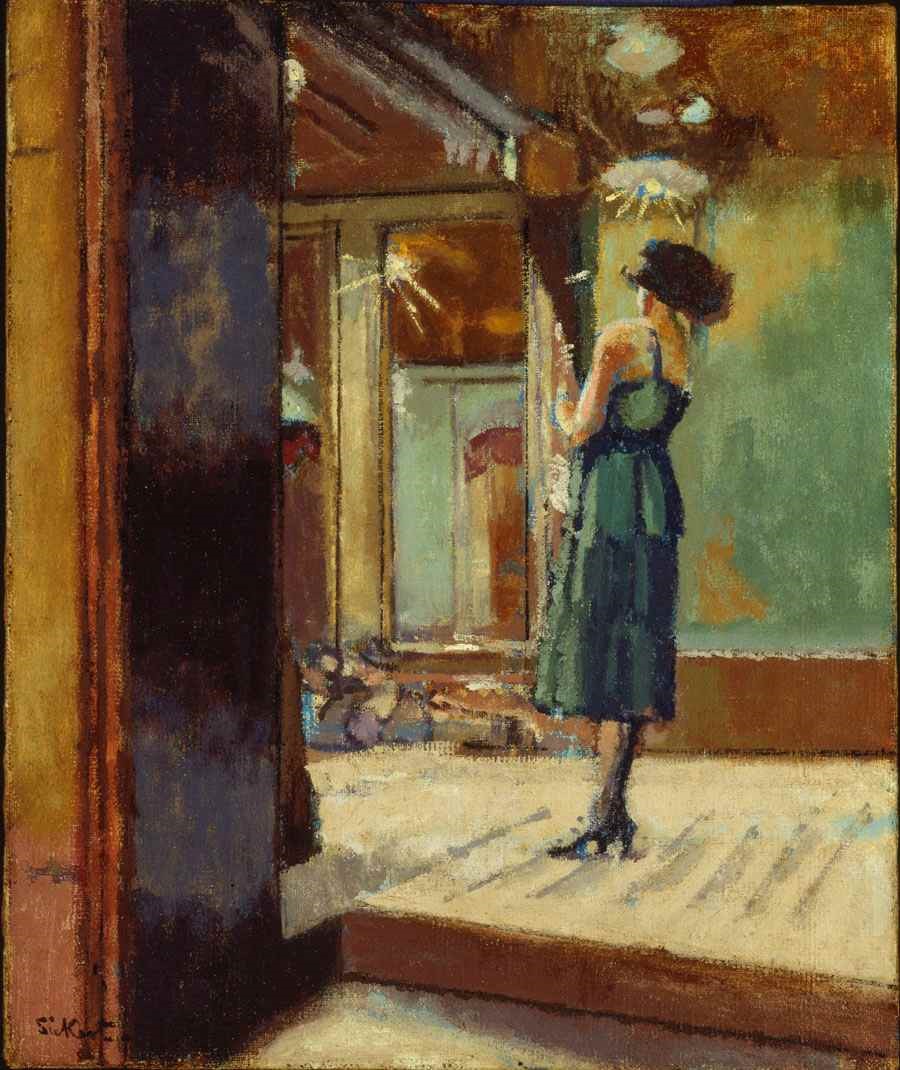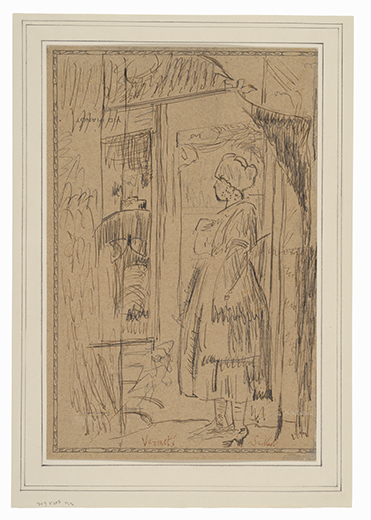Inscribed in red ink Vernet’s (lower centre) and signed (lower right).
Literature: Not in Baron 2006, but confirmed by her for the Sotheby's Sale in 2013.
Provenance: Purchased in Torquay circa 1965 by Ralph Holland;
His sale at Sotheby’s, 'Galleria Portatile' – The Ralph Holland Collection, 05 July 2013, London, lot 382.
 The present drawing is related to the final oil on canvas In the Cabaret at
the End of the Pier (Museum of Fine Arts, Montreal, 1946.963; Baron 2006 no. 583) and to three drawings recorded with the same subject (Baron 2006 no.583.1-3). [1]
Sickert had based his paintings on his “directly observed drawings” for most of his artistic career and up until 1927. [2]
The quick lines of the composition and the unconventional support suggest that Sickert drew the sketch live at the cabaret Vernet in Dieppe. Turning upside down an already marked paper and covering the previous
inscription with some lines, Sickert exploited the decorative border already printed on the sheet and theatrically framed his
composition. The printed frame was perhaps originally part of a paper tablecloth, as suggested by its many
folded forks. The
artist was an habitué of the cabaret Vernet’s at the end of the Pier Henry IV in
Dieppe as he often sketched its clientele and performers. This time,
he was drawing from the cabaret’s backstage during a female singer’s
performance.
The present drawing is related to the final oil on canvas In the Cabaret at
the End of the Pier (Museum of Fine Arts, Montreal, 1946.963; Baron 2006 no. 583) and to three drawings recorded with the same subject (Baron 2006 no.583.1-3). [1]
Sickert had based his paintings on his “directly observed drawings” for most of his artistic career and up until 1927. [2]
The quick lines of the composition and the unconventional support suggest that Sickert drew the sketch live at the cabaret Vernet in Dieppe. Turning upside down an already marked paper and covering the previous
inscription with some lines, Sickert exploited the decorative border already printed on the sheet and theatrically framed his
composition. The printed frame was perhaps originally part of a paper tablecloth, as suggested by its many
folded forks. The
artist was an habitué of the cabaret Vernet’s at the end of the Pier Henry IV in
Dieppe as he often sketched its clientele and performers. This time,
he was drawing from the cabaret’s backstage during a female singer’s
performance.
Sold
[1] For the same composition, another more defined drawing was recently at Sotheby’s Sale, The Fine Art Society: 142 Years on New Bond Street, 05 February 2019, London, lot. 143.
[2] After that date, Sickert “plundered a remarkable range of secondary sources to establish the design of his paintings.” Baron, Wendy, “The sources of two late views of Venice by Sickert”. Burlington Magazine, September 2015, Vol. 157, p.620.
